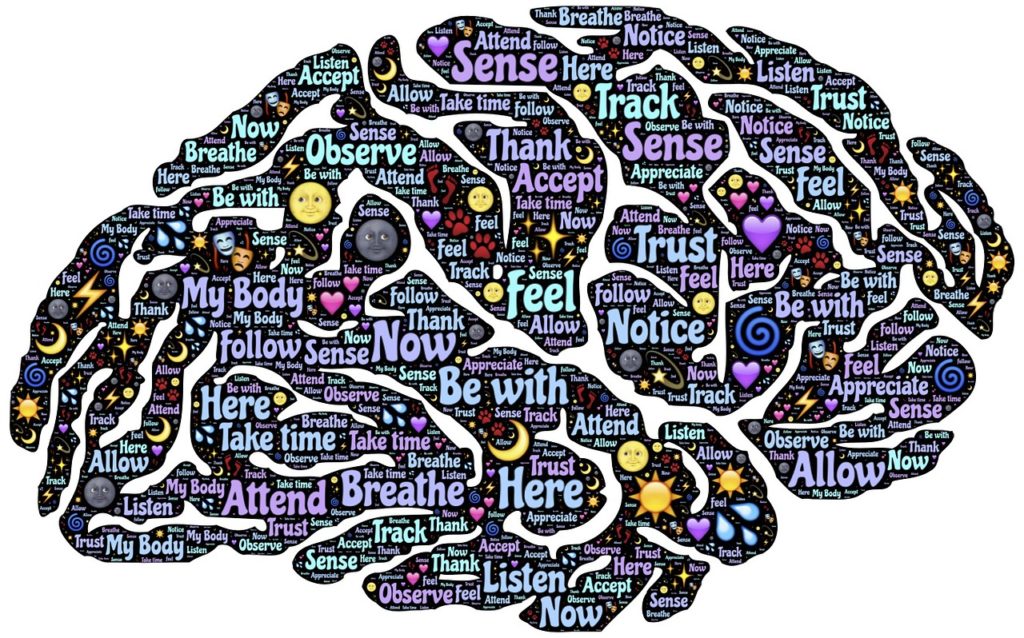Ignorance presents the Rider with a conundrum: How does one “fix” or “deal with” something both known (i.e., “I know I am ignorant…”) and, simultaneously, unknown (i.e., “I don’t know what I am ignorant of…”). The usual approach to this “problem” – when so recognized – is to [find a way to] become aware of, or in possession of, whatever relevant knowledge could be helpful, or is required…by using whatever means one has available to acquire what’s useful or necessary to know.[1]
Another approach might be to develop attitudes or mental habits[2] that can help mitigate the harmful effects of ignorance and delusion[3], even and especially while knowing – acknowledging – one is subject to such states. These are attainable – and this should not surprise – through the Rider’s proactive efforts to train (i.e., condition) our Elephant. Some of these potential “antidotes” are presented with respect to the following kinds of ignorance we contend with daily…
______
Self Ignorance
“Behind the tragic [consequences], maybe the most ironic result of compulsory and prescriptive education is yet one more form of ignorance. It is the dearth of an essential self-knowledge – i.e., to [be able to] figure out…who you are…what you believe and why…and what you really value, want, and need to enjoy a compelling and rewarding life.”[4] Because for the vast majority of us, we were never taught to question these things – and thus we live our lives at the mercy of all those externally-imposed yet unacknowledged (i.e., hidden or unexamined) beliefs and values. In other words, we have been – and remain – [take your pick] indoctrinated, programmed, and/or brainwashed.
And this self-ignorance can be rather costly. For many, it results in becoming frustrated, confused, or feeling misdirected in where life has taken them. Waking up one day and feeling “you’ve wasted your life,” or “wishing you’d done something else,” is not a pleasant experience; nor is the “never good enough” syndrome or the “having to live up to others’ expectations” to feel some measure of “success.” Put another way, “self-ignorance is not bliss…”
One antidotal attitude a person could develop is modesty, something akin to humility but with an emphasis on being open to others’ experience and upbringing – and it being different from our own thus likely to result in different beliefs and values.
An antidotal mental habit to self-ignorance is self-directed introspection (one version presented in SQ).
______
Willful Ignorance (a.k.a. self-delusion)
We often struggle with the subtle yet critical difference between what the Elephant knows and what we as the conscious Rider “know” – or want to believe is true; in other words, what both the Elephant and the Rider each “know” may not be the same.[5] And to resolve this unacknowledged conflict the Rider “chooses” to ignore the facts (i.e., self-deludes) and lets the Elephant “drive” whatever behavior is so desired.[6]
Note, however, that this conflict – with its resulting “reconciliation” – will usually then manifest in some subsequent dissonance (e.g., anxiety, anger, shame, confusion, sadness). In other words, willful ignorance works…until it doesn’t, and the dissonance becomes “too loud” or painful to live with.
SQ antidotes: integrity & acceptance…
______
Habitual Ignorance
This is an all-too-common “cognitive shortcut” we take, often the result of confirmation bias; it occurs when we make an “unconscious dismissal” of whatever else is even possible. This lazy mental tendency is another outcome of the fact we were never taught to question things.
What children learn, and now we as adults so easily engage, is a habit of ignorance – an intellectual insensitivity (numbness) to seeking out or even considering other possibilities, perspectives, or interpretations to any given issue or event. Our model of the world has been something defined and constructed on what others – parents, teachers, priests, politicians, media, even peers – have told us; and the essential work of developing rationality – which tends to embrace a healthy skepticism – has been effectively short-circuited (i.e., ignored or reflexively dismissed).
Truth, relevance, context, principles…these are meaningless and have been reduced to the insignificant. In their place this habit of ignorance nurtures a lazy and narrow mindset, one that too easily enables such malignant notions of discrimination, bigotry, narrow-mindedness, and intolerance to take root.
SQ antidotes: curiosity & questioning…
______________________________________
[1] E.g., questioning [friends, internet, therapist], using critical thinking or CBT, engaging self-development practices…
[2] E.g., a considered humility and open-mindedness, as described in the ERM-16: Ignorance card.
[3] Delusion can also manifest as a kind of ignorance; e.g., the wrath of the well-intentioned (see ERM-17C).
[4] From Schooling Scam, Jeffrey Hohl, 2010; p. 26.
[5] See Haidt’s chapter on The Divided Self in The Happiness Hypothesis, Haidt, 2006.
[6] E.g., the Rider knows that smoking can cause or contribute to cancerous growths…but the Elephant wants that butt. Or a spouse suspects the partner may be cheating…but absolutely refuses to confront or acknowledge this possibility.
__________________________________________________________________________
*Elephant/Rider Model: The Happiness Hypothesis, Jonathan Haidt, 2006.

